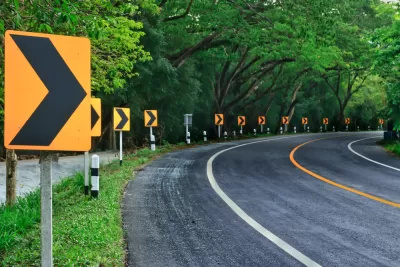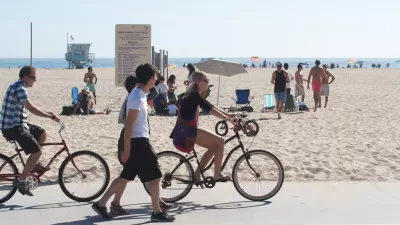Call them crashes, collisions, even incidents, just don't call them 'accidents,' emphatically states Mark R. Rosekind, Ph.D., Administrator for the National Highway Traffic Safety Administration (NHTSA), the nation's premier traffic safety agency.

"In our society, language can be everything," states Mark R. Rosekind, Ph.D., National Highway Traffic Safety Administration Administrator, in response to a question at a May 10, Harvard University—School of Public Health Conference, "Drowsy Driving and Public Health" as to whether 'drowsy' is the best word used to describe sleep-deprived driving. "I'll just tell you, in my agency, crash is not an accident."
When you use the word 'accident', it's like God made it happen. For us, 32,675 lives lost on our roads in 2014 — all those crashes, all those lives lost, were 100 percent preventable. The language you use is important.
Rosekind and other public safety advocates have their work cut out if the conference at Harvard University's School of Public Health is any indication of just how often the word is used, even among those who should know better.
In introducing the panel, which includes Arianna Huffington, editor-in-chief of The Huffington Post and author of "The Sleep Revolution," moderator Richard Knox, who reports on health and science and writes for CommonHealth, the health blog of WBUR NPR's affiliate here in Boston, states,
Accidents caused by drowsy drivers drivers happen every day. But it's hard to know the exact numbers. The National Highway Traffic Safety Administration says there were more than 72,000 police-reported accidents involving drowsy drivers between 2009 and 2013....
Even after hearing Rosekind, Knox repeatedly used "accidents" in his May 13 article in WBUR's CommonHealth on the conference.
In fact, NHTSA dropped the word 'accidents' after they launched their "crashes are not accidents" campaign in 1997 as noted in an earlier post.
"Dr. Rosekind has added his voice to a growing chorus of advocates who say that the persistence of crashes — driving is the most dangerous activity for most people — can be explained in part by widespread apathy toward the issue," writes Matt Richtel in The New York Times.
That is the position of a growing number of safety advocates, including grass-roots groups federal officials and state and local leaders across the country. They are campaigning to change a 100-year-old mentality that they say trivializes the single most common cause of traffic incidents: human error.
Changing semantics is meant to shake people, particularly policy makers, out of the implicit nobody’s-fault attitude that the word “accident” conveys, they said.
One outspoken advocacy group, Families for Safe Streets in New York City, launched a campaign directed at language: Let's stop saying "accident" today. Take the #CrashNotAccident pledge. So far, 4,207 readers have pledged.
Successes
- On Jan. 1, the state of Nevada enacted a law, passed almost unanimously in the Legislature, to change “accident” to “crash” in dozens of instances where the word is mentioned in state laws, like those covering police and insurance reports.
- New York City adopted a policy in 2014 [stated in the Vision Zero Action Plan PDF] to reduce fatalities that states the city “must no longer regard traffic crashes as mere ‘accidents,’ ” and other cities, including San Francisco, have taken the same step.
- At least 28 state departments of transportation have moved away from the term “accident” when referring to roadway incidents, according to Jeff Larason, director of highway safety for Massachusetts [and president of Safe Roads Alliance]. The traffic safety administration changed its own policy in 1997, but has recently become more vocal about the issue.
- Mr. Larason, a former television traffic reporter, started a blog called “Drop The A Word” and has led a campaign to get major media outlets to stop using the term. Last year, he enlisted supporters to join with grass-roots groups in urging The Associated Press to clarify how reporters should use the word “accident.”
See the Planetizen post on the new 'conditional' policy adopted by The Associated Press last month, only using 'crash' when driver negligence is proven or suggested. While clearly not going where safety advocates would like, Richtel's paper, The New York Times has yet to adopt any guidelines.
Richtel does present the positions of those who defend using the term 'accident,' which continues to be used for all modes of transportation by the NHTSA's half-sister, the National Transportation Safety Board. [See "Accident Reports"]. Unlike NHTSA, which falls under the U.S. Department of Transportation, the NTSB is an independent agency placed within the DOT for administrative purposes, according to its webpage.
Richtel also explores the interesting origin of the word with transportation historian Peter Norton, who is occasionally cited here, when manufacturing industries use the word to absolve them of responsibility when employees were injured on the job.
Hat tip to Mark Boshnack.
FULL STORY: It’s No Accident: Advocates Want to Speak of Car ‘Crashes’ Instead

Study: Maui’s Plan to Convert Vacation Rentals to Long-Term Housing Could Cause Nearly $1 Billion Economic Loss
The plan would reduce visitor accommodation by 25,% resulting in 1,900 jobs lost.

North Texas Transit Leaders Tout Benefits of TOD for Growing Region
At a summit focused on transit-oriented development, policymakers discussed how North Texas’ expanded light rail system can serve as a tool for economic growth.

Why Should We Subsidize Public Transportation?
Many public transit agencies face financial stress due to rising costs, declining fare revenue, and declining subsidies. Transit advocates must provide a strong business case for increasing public transit funding.

How to Make US Trains Faster
Changes to boarding platforms and a switch to electric trains could improve U.S. passenger rail service without the added cost of high-speed rail.

Columbia’s Revitalized ‘Loop’ Is a Hub for Local Entrepreneurs
A focus on small businesses is helping a commercial corridor in Columbia, Missouri thrive.

Invasive Insect Threatens Minnesota’s Ash Forests
The Emerald Ash Borer is a rapidly spreading invasive pest threatening Minnesota’s ash trees, and homeowners are encouraged to plant diverse replacement species, avoid moving ash firewood, and monitor for signs of infestation.
Urban Design for Planners 1: Software Tools
This six-course series explores essential urban design concepts using open source software and equips planners with the tools they need to participate fully in the urban design process.
Planning for Universal Design
Learn the tools for implementing Universal Design in planning regulations.
City of Santa Clarita
Ascent Environmental
Institute for Housing and Urban Development Studies (IHS)
City of Grandview
Harvard GSD Executive Education
Toledo-Lucas County Plan Commissions
Salt Lake City
NYU Wagner Graduate School of Public Service




























